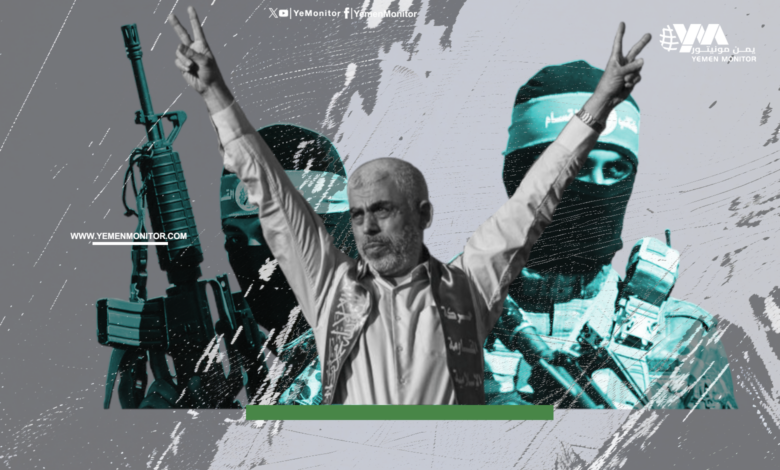The Danger of Dichotomous Thinking: With or Against

By/Mareb al-Ward
With every crisis or war that erupts here or there and captures public attention beyond its geographic context, the discussion is dominated by a binary equation: with or against. This creates the illusion that the matter is a mere football match, rather than a serious event with direct and indirect consequences due to the interconnectedness of interests and the far-reaching effects of those involved.
This is clearly evident in the prevailing trends on social media platforms that have brought millions together on a single platform to discuss and debate what is happening and what matters to people, even out of curiosity and the pursuit of interactions in the hope of making a profit from these platforms. This has contributed to the expansion of a negative pattern of binary thinking and analysis that reflects, in one way or another, a mixture of populism and emotion.
This type of thinking prevails even at the level of elites who are supposed to be more mature and rational. Consequently, they bear the responsibility of guiding the compass of the discussion in a way that contributes to knowledge and understanding, and makes it easier for the general public to think constructively and make rational decisions.
Since the events of October 7th and before that, and specifically since the Arab Spring revolutions, binary thinking has become more prominent and widespread thanks to social media platforms. This does not mean that it did not exist before, as this pattern is part of thinking regardless of its soundness, but it was not as prevalent as it is today.
Someone writes a tweet, post, or comment about the events of October 7th and what followed, and you find the discussion veering towards division. One says, “You are with Hamas and the rest of the resistance factions,” while another goes far from the main topic of discussion to adopt positions that put them at odds simply because they do not like those factions. The issue is not about who supports and who rejects, but rather about discussing the event and what it means to you as an Arab, a Muslim, and a human being.
The practice of labeling individuals or assigning them a label they do not belong to, instead of engaging in a discussion about what they say or present with minimal narrow framing, weakens and divides the nation, especially during crises and calamities, as is currently happening. This might explain why our influence is weak on social media, and then we blame others for not doing what we’ve abandoned.
When someone shares an article or interview with a speaker whose views can be debated both positively and negatively, others immediately resort to judgment based on past actions, even if the content being shared is about a different, albeit related, issue.
The negative impact of this mindset lies in its contribution to a sense of negativity and apathy. It reinforces a reactive approach influenced by social media culture, prioritizing engagement, views, and personal fame over substance. As a result, individuals’ reactions to current and past events are often driven by the fleeting nature of online trends, their interest diminishes even in issues that threaten their future.
While it’s true that current events tend to dominate our attention, with new crises overshadowing older ones (as is the case with the current focus on Lebanon, while issues like Gaza, Sudan, and Yemen seem to be forgotten), this pattern has evolved into a reflection of broader changes in consciousness and culture, driven by sectarian divisions, negative transformations, and other factors.
I used to believe that this kind of thinking was prevalent only among Arab audiences on social media and, of course, in real life. However, I’ve noticed a similar tendency among Western audiences. For instance, when I’ve commented on the war in Ukraine, I’ve often been labeled as a supporter of Russia, even though I have never expressed such support. Simply because I haven’t explicitly supported Ukraine, people assume I must be on the other side.
What concerns me here is our situation as Arabs and Muslims, as we move further away from what unites us even at the level of nations. While I understand some of the reasons that have led to this, I find it difficult to comprehend those who react negatively to what is happening in their surroundings when they are not compelled to do so for any reason.
The Palestinian cause is about a people striving for their freedom and independence for decades and should not be reduced to one side or the other. Even if one has reservations about specific factions or believes they are responsible for certain crises, this does not justify adopting a hostile stance against the cause and the people, let alone siding with the occupier, knowingly or unknowingly.
Such attitudes can be attributed to various factors, including a tendency towards dichotomous thinking that reduces complex issues to simplistic binaries. This mindset leads individuals to approach critical issues and human lives with a casual, irresponsible demeanor, framing their discussions in terms of “with or against.” When this becomes a pervasive mode of thinking, it shapes our understanding and becomes a cultural norm.
One can engage in debates and express opinions against Hamas, Hezbollah, Iran, or any other entity without resorting to this reductive categorization. The tendency to frame every issue within a rigid “us versus them” dichotomy has often backfired on those who employ it, as evidenced by the backlash against Dr. Khalid Al-Dakhil’s comments about Hassan Nasrallah.
This kind of thinking is detrimental to those who adopt it, as they become vulnerable to the same treatment when they face challenges. It leads to a situation where every issue is framed within a binary framework. For example, events in Lebanon are often reduced to being solely about targeting Hezbollah, ignoring the broader implications for the country and its people.
Social media has significantly contributed to the proliferation of this mode of thinking. While I hesitate to call it a phenomenon, it is certainly a widespread cultural trend. The ease with which anyone can express their opinions on social media, coupled with the lack of accountability, has facilitated the spread of binary thinking. Moreover, the desire for attention and popularity has led to the emergence of social media influencers who often promote simplistic, divisive narratives.
The prevalence of this kind of thinking has implications for domestic issues as well, fostering divisions within societies and even regions. While political dissent and criticism of governments are legitimate rights in countries with some degree of freedom, they should not be conflated with the kind of destructive binary thinking discussed here.
To counteract this trend, intellectuals and influencers must fulfill their moral and intellectual obligations by engaging in thoughtful, nuanced discourse on issues affecting the Arab and Islamic world. They should promote a sense of shared responsibility and belonging, rather than fueling divisions and populism.
I am well aware that the task is difficult, that this mindset is spreading more than it is shrinking, and that there are various reasons that contribute to its growth to serve the interests of governments, groups, or organizations. Nevertheless, efforts must be made to change awareness and concepts and to establish the flawed idea of dealing with significant, important, and dangerous events as if they were mere football matches, where it is understandable to debate with or against a particular team or national selection because nothing substantial is at stake.
If the efforts of influential individuals and institutions do not come together to promote a more responsible and less populist and binary mindset, this way of thinking will dominate our lives among scholars, thinkers, academics, and others. It goes without saying to imagine the anticipated outcome in the end.





